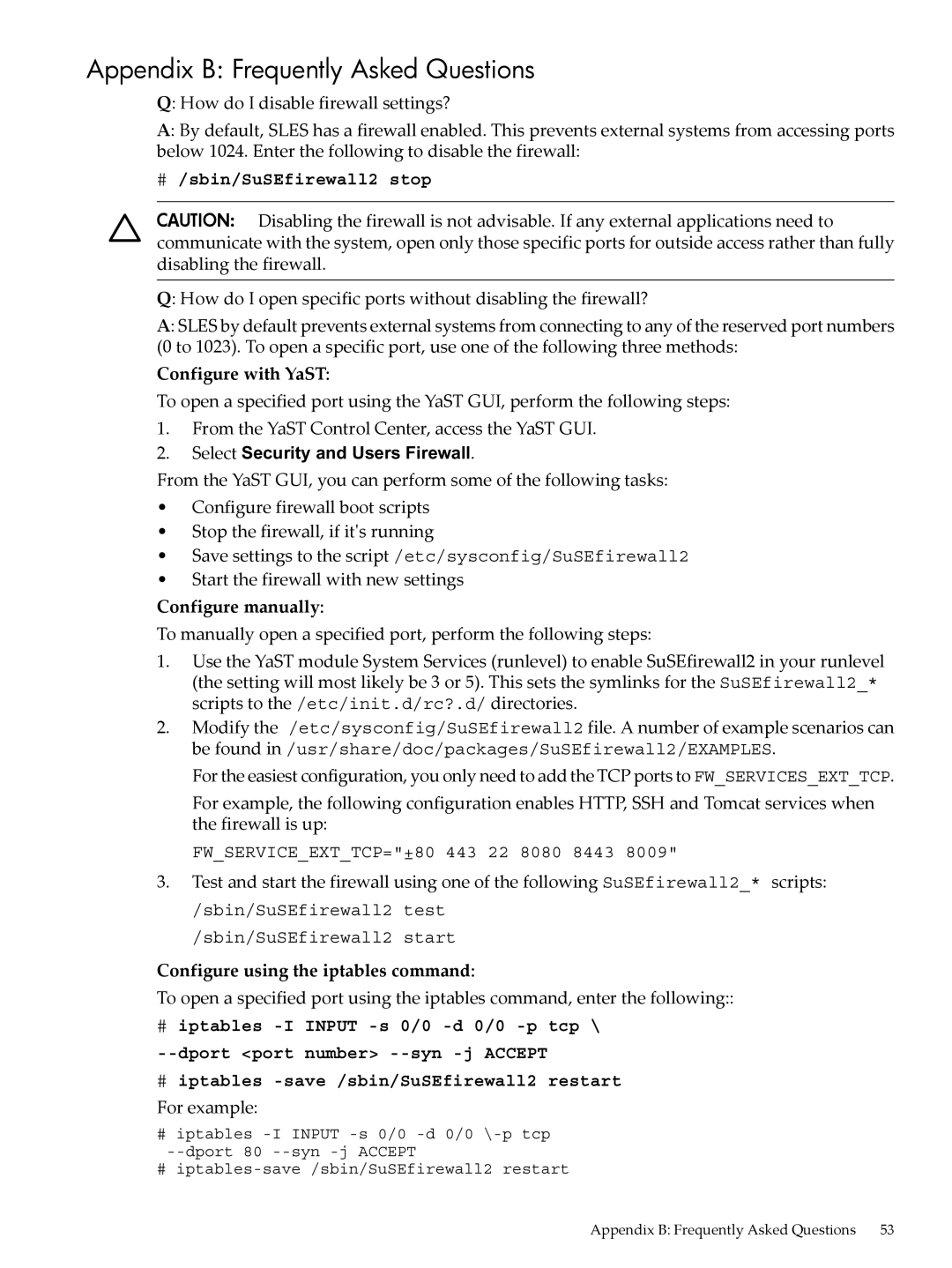
Appendix B: Frequently Asked Questions
Q: How do I disable firewall settings?
A: By default, SLES has a firewall enabled. This prevents external systems from accessing ports below 1024. Enter the following to disable the firewall:
#/sbin/SuSEfirewall2 stop
CAUTION: Disabling the firewall is not advisable. If any external applications need to communicate with the system, open only those specific ports for outside access rather than fully disabling the firewall.
Q: How do I open specific ports without disabling the firewall?
A: SLES by default prevents external systems from connecting to any of the reserved port numbers (0 to 1023). To open a specific port, use one of the following three methods:
Configure with YaST:
To open a specified port using the YaST GUI, perform the following steps:
1.From the YaST Control Center, access the YaST GUI.
2.Select Security and Users Firewall.
From the YaST GUI, you can perform some of the following tasks:
•Configure firewall boot scripts
•Stop the firewall, if it's running
•Save settings to the script /etc/sysconfig/SuSEfirewall2
•Start the firewall with new settings
Configure manually:
To manually open a specified port, perform the following steps:
1.Use the YaST module System Services (runlevel) to enable SuSEfirewall2 in your runlevel (the setting will most likely be 3 or 5). This sets the symlinks for the SuSEfirewall2_* scripts to the /etc/init.d/rc?.d/ directories.
2.Modify the /etc/sysconfig/SuSEfirewall2 file. A number of example scenarios can be found in /usr/share/doc/packages/SuSEfirewall2/EXAMPLES.
For the easiest configuration, you only need to add the TCP ports to FW_SERVICES_EXT_TCP.
For example, the following configuration enables HTTP, SSH and Tomcat services when the firewall is up:
FW_SERVICE_EXT_TCP="±80 443 22 8080 8443 8009"
3.Test and start the firewall using one of the following SuSEfirewall2_* scripts:
/sbin/SuSEfirewall2 test /sbin/SuSEfirewall2 start
Configure using the iptables command:
To open a specified port using the iptables command, enter the following::
#iptables
#iptables
For example:
#iptables
#
Appendix B: Frequently Asked Questions 53
